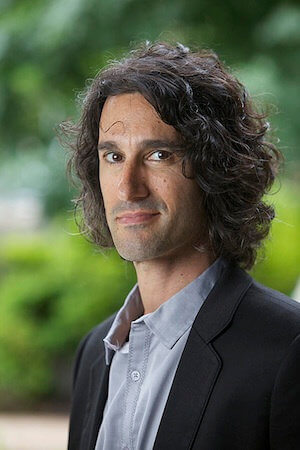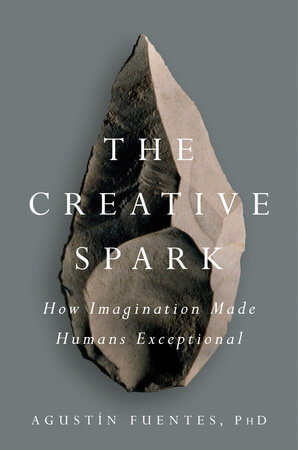 Agustín Fuentes
Agustín Fuentes
There are four predominant arguments that seek to explain human evolution and human nature — humans are naturally aggressive; humans are naturally caring; humans are natural hunter-gatherers; humans are transcendentally intelligent.
Agustín Fuentes finds those to be compelling but extremely simplified. Years of research and an emphasis on cross-disciplinary conversations has instead led him to a more complete story of human evolution.
Creativity and collaboration, he’s found, are the most important explanations for why we are the way we are.
“Combining the one with the other, as no other species has ever been able to do so well, propelled the development of our bodies, minds, and cultures,” said Fuentes, professor and chair of the University of Notre Dame’s Department of Anthropology. “We are neither simply the demonic species nor the altruistic species. We are neither entirely untethered from our biological nature nor slavishly yoked to it.
“We are, first and foremost, the species singularly distinguished, and shaped, by creative collaboration.”
Fuentes details this bold perspective in his new book, The Creative Spark: How Imagination Made Humans Exceptional (Dutton, 2017), which blends paleontology, archaeology, genetics, and anthropology in answering the question of what has made humans the most exceptional of Earth’s species.
 The Creative Spark
The Creative Spark
The book is the product of Fuentes’ field research as an anthropologist and National Geographic explorer, but it is also the result of more than a decade of efforts to bring together specialists from a wide range of fields. By collaborating with mathematicians, geneticists, computer scientists, philosophers, and theologians, Fuentes said he recognized that a more nuanced, complete, and judicious accounting of human evolution was necessary.
Creativity and collaboration, he argues, helped us elude predators, make tools, share food, control fire, and tell stories. It led us to collectively care for the young, develop religious beliefs and ethical systems, and produce masterful artwork.
But humans also applied that same creativity and cooperative skill to compete with each other, killing at increasing levels of complexity, and manipulating the planet to devastating effects.
“Our lineage survived while all other human species went extinct because our ancestors used their creative capacity to reshape the threats and opportunities of their environments, in turn reshaping themselves,” he said. “They were subject to the same set of basic evolutionary rules as all living creatures, but they managed to bend them. Modern humans are simultaneously the result and cause of our own evolution, for better and for worse.”
Fuentes’ previous books include Evolution of Human Behavior (Oxford University Press, 2009), Biological Anthropology: Concepts and Connections (McGraw-Hill, 2011), and Race, Monogamy, and Other Lies The Told You: Busting Myths About Human Nature.
In February, he was named chair-elect of the anthropology section committee of the American Association for the Advancement of Science. At Notre Dame, where he has been on the faculty since 2002, he is a fellow of the Liu Institute for Asia and Asian Studies, Institute for Latino Studies, the Kroc Institute for Peace Studies, and the John J. Reilly Center for Science, Technology, and Values.
The Creative Spark has been met with widespread acclaim, including positive reviews in The Economist, Booklist, and Library Journal. Fuentes has also detailed his research for the book in New York magazine, in a National Geographic interview, and in an Ask Me Anything session on Reddit.
“(I was surprised to find) how resilient we are as individuals as a species,” Fuentes wrote in response to a Reddit question about his most unexpected finding in his research. “Humans have a real knack for figuring out how to make it work through the toughest times. This is the creativity that I write about and it’s the massive evidence for it that forced me to write this book.”